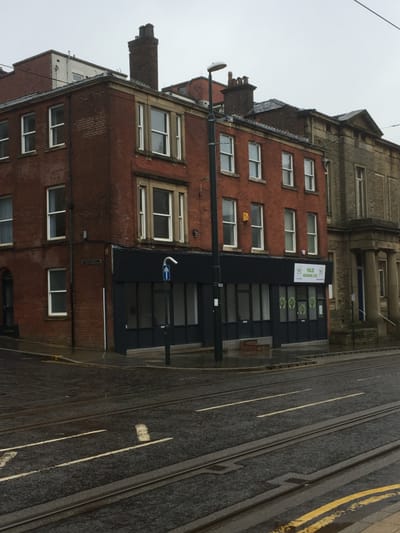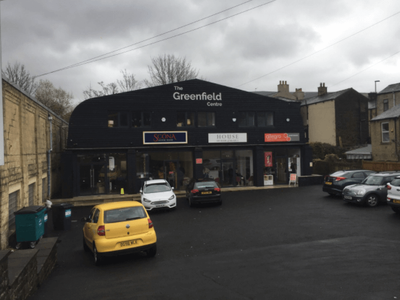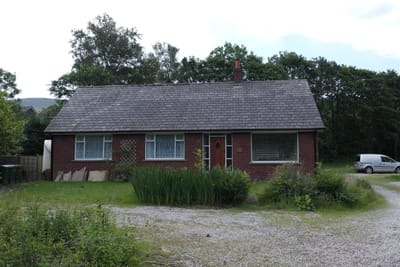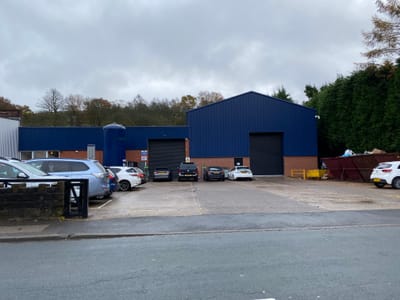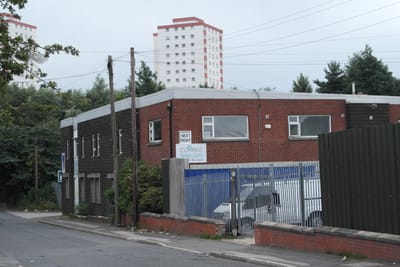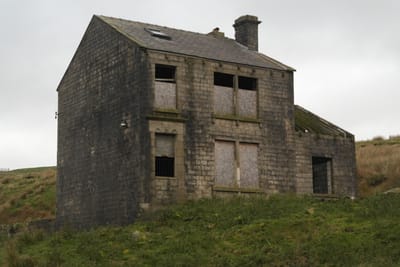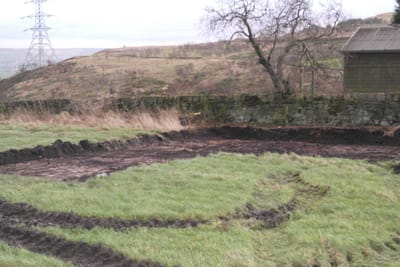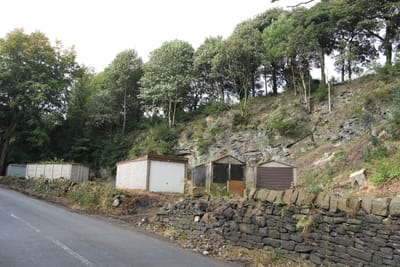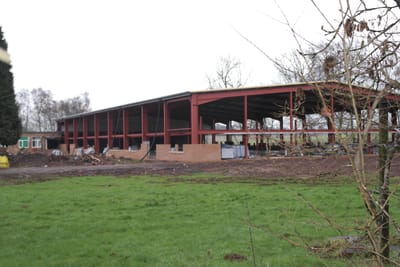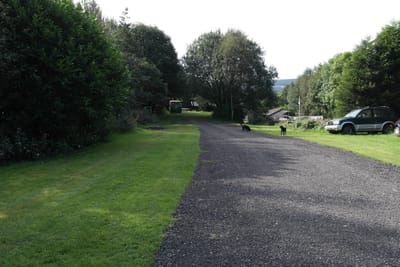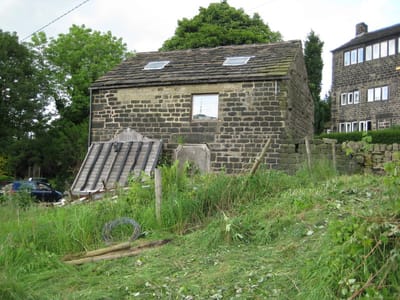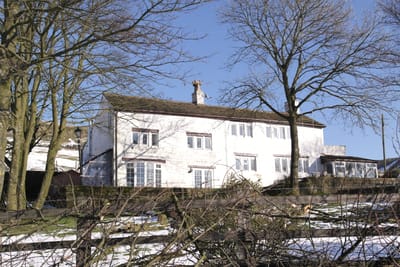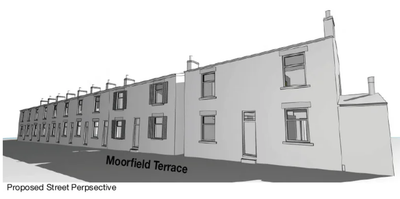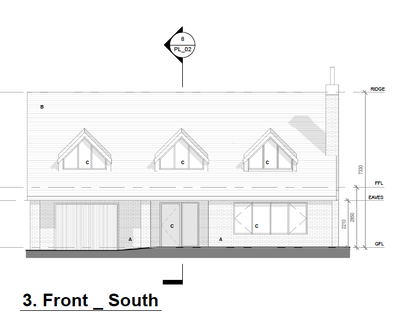Mark Jones Planning Consultancy
A friendly, customer focussed planning consultancy based in Saddleworth, Greater Manchester
About us

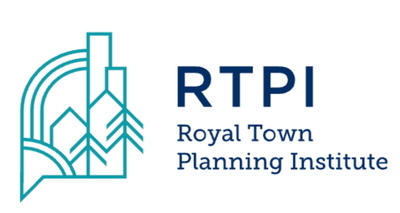
Mark Jones is a Chartered Town Planner with over 30 years hands on planning experience in local government and in the private sector. He holds a BA Hons degree and Bachelor of Town Planning Degree and has been a Chartered Member of the Royal Town Planning Institute since 1995. He also has a Diploma in Management Studies and a Postgraduate Certificate in Education.
Over the years the core values of the business haven't changed and it continues to offer a personal planning and consultancy service whether you are a business that wishes to expand or a homeowner who is having trouble obtaining planning permission - we are here to help you!
Our consultancy has a diverse client base ranging from medium sized businesses to individuals. Our aim to exceed the expectations of our customers and to offer a bespoke service by only offering a planning service that we know we can deliver.
Once you become a client we ensure that you are regularly updated either by a phone call, face to face meeting or through an email. One of our greatest strengths is to provide impartial advice and to explain the complexities of the planning system.
Many of our clients return and often become friends, which shows how happy they are with our service.
We also work alongside many architectural practices and technologists as well as tree consultants, noise consultants and surveying companies to provide a comprehensive service. We recommend the relevant professionals to ensure that our planning submission stand the best chance of success.
Our planning services include:
- Planning applications and appeals
- Site appraisals and development opportunity assessments
- Planning enforcement issues - enforcement notices and threats of enforcement action
- Specialist advice with regards to:-
- Green Belt development
- Barn/agricultural building conversions
- Household extensions
- Hot food takeaways and restaurant uses
- Garden developments
- Housing schemes
- Commercial schemes
- Agricultural and residential permitted development applications
- Development Plan representation
- Design advice
- Planning objections/representations
Our PLANNING Services
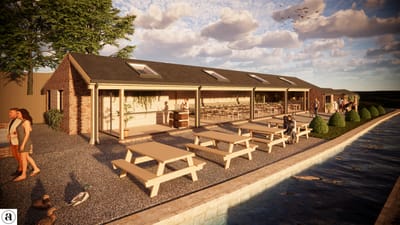
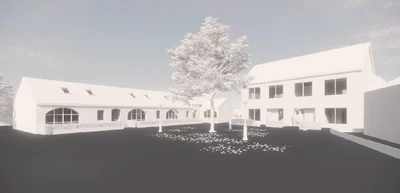

PLANNING APPLICATIONS
The main part of our business is to act on behalf of applicants to secure planning permission for development proposals. We have over thirty years of planning experience, with 20 years of it working for Councils.
We understand the planning process and recent changes in National planning guidance in the form of the National Planning Policy Framework and National Planning Practice Guidance.
We can recommend Architects and Architectural Technicians to work with us to get a scheme ready for planning submission. By working together you get our expertise in understanding the complexities of the planning system as well as access to qualified designers. We can also bring in other experts, when necessary, to provide advice in respect of trees, ecological issues, land contamination, topographical surveys and flood risk.
PLANNING APPEALSReceiving a refusal of planning consent can be incredibly frustrating. In November 2017 we formed Planning Appeals North West as a sister business to our planning consultancy to meet the increased demand. Please have a look at our website for more information about the types of planning appeal that we get involved with and some of our success stories.
Planning appeals are not just about appealing against the refusal of planning permission, but about appealing against unreasonable planning conditions, enforcement notices and the failure of a planning authority to determine an application within the prescribed time period.
PLANNING OBJECTIONS
We also offer the service of preparing written objections against planning proposals. You will receive a site meeting together with advice regarding what are material planning objections.
Contact
- Greenfield, UK
- +44-07979864472 - Mark Jones
- mjonesplanning@gmail.com
- Mon-Fri - 09:00-17:00
F.A.Q
What service can I expect to get?
We act with competence, honesty and integrity and provide you with independent planning advice.
Before being commissioned to undertake the work we will meet with you to discuss the following:-
• scope of the advice which the client really needs.
.
• the client’s objectives in commissioning the work.
• timetable to which the client wants you to work.
• professional resources that you will need to put into the work.
• outputs and deliverables required by the client.
• background information and technical data that are available from the client.
• financial or budgetary constraints on the extent of the work.
• any specific requirements the client may have about the way the work is to be managed.
A short letter/email is always provided explaining what is included within the commission, when and how the work will be performed, and what the estimated costs are likely to be.
How much does it cost?
We provide a fee range that the commission will usually fall within and if it starts to exceed this limit then we talk it through with you and agree additional fees beforehand. This is usually because of additional work, attendance at Planning Committee, additional meetings outside the initial scope of works or a planning appeal.
Fees are paid at the start of the commission, with a final fee once a decision is made.
Please get in touch and we will give you a general idea of our fees.
Replacement of timber stables with detached dwellinghouse in Green Belt in Sowerby Bridge
We successfully argued the impact on the openness of the Green Belt was within acceptable parameters and the re-use of previously developed land.
Access was also considered to be appropriate for the scale of development. We had to navigate BNG with both on-site planting and off-site credits being required.
The development will provide a much needed house within the rural area.
Redevelopment of Grandpa Greenes in Diggle
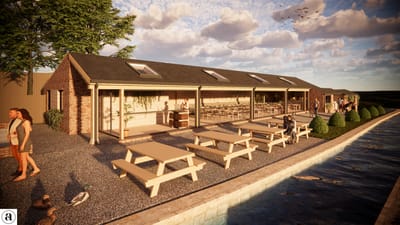
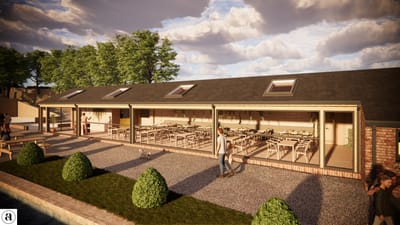
Outdoor Dining area to restaurant in uppermill Conservation Area
The Council agreed that the outside dining area would result in significant public benefit to a non-designated heritage asset within the Uppermill Conservation Area. The restaurant is to undertake an extensive remodelling and include an attractive outdoor dining experience overlooking the River Tame.
Green Belt - stable conversion to two bedroom dwellinghouse
The stable was built under permitted development as a Class E outbuilding to the applicant’s house. A change in the applicant’s circumstances resulted in the stables no longer being needed and an alternative, sustainable form of development was considered, in the form of a dwellinghoue.
The Council took a pragmatic approach and considered the impact on the openness of the Green Belt to be limited due to the character of the area and they were satisfied that the building was permanent and substantial and capable of conversion. The development was considered to be a sustainable form of development and caused limited impact on its Green Belt location.
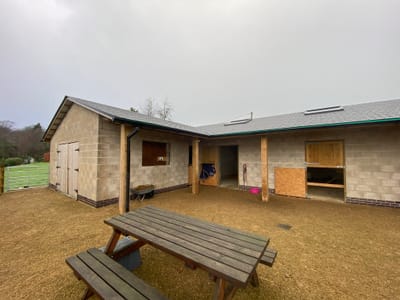
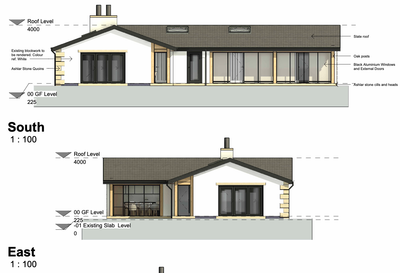
uPVC windows in conservation area - The Boarshurst Centre, Greenfield
In considering the public benefits of the proposal the Council agreed that the following public benefits of allowing the development outweighed any harm:
- UPVC will be low maintenance,
- Houses in the conservation area have UPVC,
- The windows will be recessed as existing,
- Reduction in panes will allow more light into the building,
- The building is managed by 2 local charities providing low cost accommodation,
- The building supports outdoor pursuits across Saddleworth for up to 32 people,
- The charities services bring significant public benefits to Saddleworth tourism,
- The charities are non-profit and all money is reinvested into the building,
- The building is an important community facility,
- The UPVC will allow massive improvements to energy efficiency,
- The energy efficiency will save on energy bills,
- The windows are to be funded by grants to support the building.
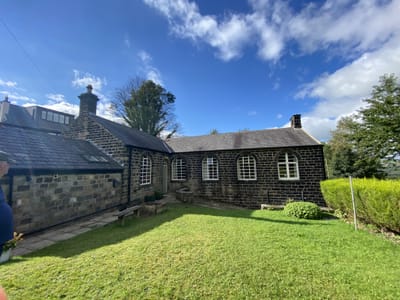
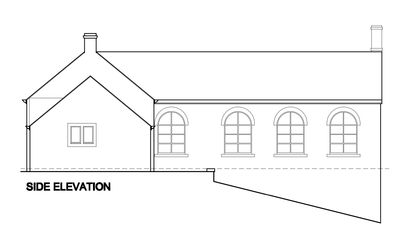
Prior Approval obtained for to convert barn into four dwellinghouses
Prior Approval has been granted to convert a 200 year old brick barn in Chadderton into four houses under Class Q. Prior approval has also been granted to add an additional storey to the adjoining farmhouse under Class AA and a large rear extension under Class A of the Town and Country Planning (General Permitted Development) Order.
When considering development works it is always useful to assess what can be undertaken using permitted development rights.
conversion of former toilet block to cafe with glazed extension and sedum roof in uppermill park
Permission granted IN GREEN BELT for new tourist accommodation in saddleworth
Working with Studio OL3 permission has been granted to convert a stable in the Green Belt into a two bedroom holiday cottage with outside hot tub with amazing views across the Saddleworth Valley.
Conversion of Domestic Garage to a One Bedroom Holiday Cottage in Standedge, Saddleworth
In partnership with Creative Architecture we have secured planning permission to convert a garage to a one bedroom house on the edge of the Peak District National Park. The site is located close to the Pennine Way and other footpath routes and was considered to promote tourism in Saddleworth. The Council supported the need for additional tourist facilities and recognised that such uses are not always located in the most sustainable locations.
Conversion and extension of timber stable to Airbnb, Heaven Barn, Diggle
Planning permission has been secured to convert and extend an existing timber stable into a luxurious holiday rental. The site was located within the rear garden and in the Green Belt, close to the Conservation Area boundary.
Condition restricting permitted development rights in Green Belt removed at appeal – Royal Oak Delph
The Council’s objections were based on the impact of permitted development extensions on the openness of the Green Belt and the potential impact on the setting of the neighbouring Heights Chapel, a Grade II Listed Building.
The Council was concerned that the removal of the condition could result in disproportionate additions over and above the size of the original building. The Planning Inspector disagreed and considered the Town and Country Planning (General Permitted Development) (England) Order 2015 (as amended) (GPDO) does not seek to limit such rights for properties in the Green Belt. Paragraph 54 of the Framework sets out that national permitted development rights can be restricted using planning conditions but on the provision that there is a clear justification for doing so. He came to the conclusion that the planning permission would result in the change of use from a business use to a dwellinghouse which would then benefit from permitted development rights, but this in itself is not a justification for removing such rights.
In respect of the neighbouring heritage asset the Council stated that permitted development rights would enable a considerably sized outbuilding to be erected, and that there is a need to have special regard to the desirability of preserving the listed asset’s architectural or historic interest or setting. The GPDO does allow, under Class E, the erection of buildings within the curtilage of a dwellinghouse that are incidental to the enjoyment of it. Such a building would be subject to certain limits and conditions and key amongst these are height restrictions and a limit that such a building within the curtilage. The Inspector concluded that given the height and prominence of the nearby listed building and the two-storey form of the appeal property, such a building, erected under Class E of the GPDO would not detract from the significance of either the listed building or the non-designated heritage asset.
The Inspector concluded that the condition would not meet the tests of being reasonable or necessary and as such the appeal was successful.
Many Councils impose planning conditions that remove permitted development rights on developments within the Green Belt as a matter of course without taking into account paragraph 54 of the Framework which clearly states that planning conditions should not be used to restrict national PD rights unless there is a clear justification to do so. If such a planning condition is imposed seek advice to see whether there are grounds to appeal against such a planning condition.
permission granted to demolish livery stable and erection of bungalow in glossop - Appeal Update
Despite ongoing discussion about the proposed planning conditions the Council imposed fifteen planning conditions which in our opinion many failed to meet the six planning tests. An appeal against some of the planning conditions was lodged.
APPEAL UPDATE
A Full Award of Costs has been awarded and permission granted to vary and delete planning conditions relating the bungalow.
Environmental Health conditions relating to dust, fires and emissions were not considered reasonable as they are more appropriately dealt with under other legislation. A condition relating to an asbestos survey was withdrawn by the Council.
Conditions were amended to ensure that development could start without any pre-development conditions and some were amended for precision.
As is so often the case the Council imposed a condition that removed permitted development rights for extensions, alterations and outbuildings on the basis of its impact on the openness of the Green Belt and on the basis of protecting the character of the area. Such a condition is contrary to Government advice which states that planning conditions should not be used to restrict national permitted development rights unless there is clear justification to do so.
In respect of the Full Award of Costs the Inspector came to the following conclusion:
“Paragraph 049 of the PPG sets out a list of types of behaviour which may give rise to a substantial award of costs against a local planning authority. This includes imposing conditions which are not necessary, relevant to planning and to the development to be permitted, enforceable, precise and reasonable in all other respects.
My findings above lead me to conclude that the imposition of the aforementioned conditions, either in their entirety or their specific wording, were against national guidance in that they were either unnecessary, unreasonable or not precise."
Accordingly, the Council behaved unreasonably which resulted in the applicant incurring unnecessary and wasted expense through the subsequent appeal to challenge this decision and the expense of making the costs application. A full award of costs is therefore justified.”
Despite engagement with the Planning Officer about the suggested conditions during the course of the application none of the conditions were amended and this resulted in the planning appeal.
This is a case where the Council was unwilling to enter into negotiations regarding draft planning conditions and did not assess each conditions against the strict criteria imposed through paragraph 049 of the PPG.
Positive outcome for Dog Grooming Business in outbuilding to the rear of a dwellinghouse
Early dialogue with the Planning Officer has resulted in a positive outcome despite vociferous objections from neighbouring properties. Planning conditions were imposed regarding the hours of use and limiting the number of dogs being groomed at any one time as well as ensuring that all windows and doors of the outbuilding are closed whilst dog grooming takes place. This is an example where the imposition of planning conditions overcome planning concerns with regarding the impact of the business on neighbours.
The Planning Officer considered the scale, siting and how the business operates would not lead to any significant adverse impact on the character of the area neither would it detract from the amenity of the occupiers of neighbouring properties to a significant degree.
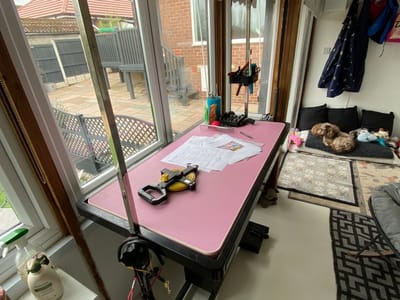
Prior Approval Consents - Part Q conversion agricultural building to dwellinghouses
From 21st April 2024 Class Q has been amended as follows:
- No more than 10 separate dwellinghouses can be developed under this Class.
- The floor space of any dwellinghouse cannot exceed 150m2.
- The cumulative floor space of dwellinghouses developed under this Class cannot exceed 1,000 square metres.
- Small single storey rear extension (4 metres) are permitted but must be situated on land that's covered by an existing hard surface that was provided on the land on or before 24th July 2023, or (if provided on the land after that date) for at least 10 years. The developer needs to apply to the LPA (i.e. submit an application for prior approval) with respect to the additional issue of "the impact of the proposed extension on the amenity of any adjoining premises".
- The existing building must be capable of complying with the "the nationally described space standard".
- The building must have "suitable existing access to a public highway"
If you have an agricultural building that meets the above criteria please get in touch to see if we can help you.
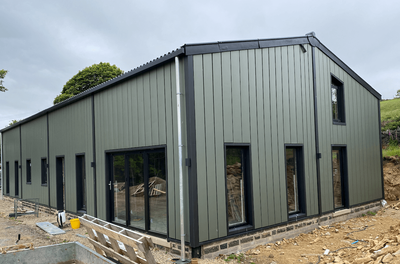
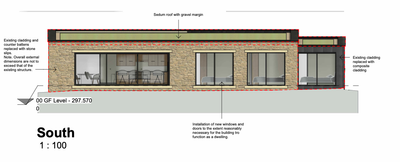
Permission Granted for three houses IN GREEN BELT - former cattery site, chadderton, oldham
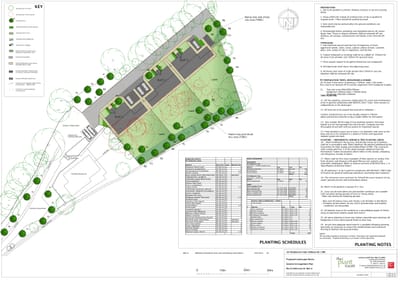
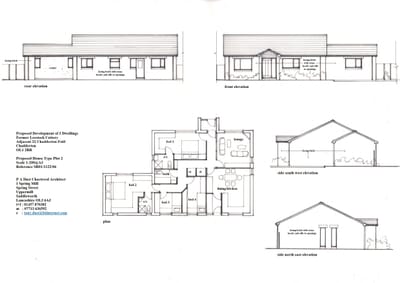
Working positively with experienced Oldham Council Planners resulted in agreement being met with regards to planning conditions that met the strict planning tests. Initially the Council planned to remove all permitted development rights for extensions, outbuildings and alterations, but after discussing Government policy and recent appeal decisions, it was considered that such a condition was not necessary. This means that future residents will be able to extend their houses using permitted development rights as well as small outbuildings without having to apply for planning permission.
The site is located within the Green Belt where development is tightly controlled. The Council's Planning and Highway Officer's both agreed that access to the site was safe and would result in much needed housing within the Borough.
Two storey house granted in green belt, The Heights, Delph
Working positively with the local Council has resulted in planning permission being granted to address access, footpath, tree and Green Belt issues.
Working alongside Studio KMA a 4 bedroom L shaped house will be delivered with integral car parking. We can’t wait to see what the final design will look like in this unique location.
Two detached houses granted to replace stone workshop and stable in Green belt
Working closely with Creative Architecture Ltd we have delivered two truly outstanding houses that will deliver lifetime homes for the applicant and her family. By managing the client's initial expectations a fantastic housing scheme has been delivered for local people.
Working closely with Council Planners minor amendments were made to the initial concept drawings, which reduced the need for onerous planning conditions to be imposed. We can't wait to see the finished properties.
Improvements to the standard of accommodation provides Very Special Circumstances in green belt
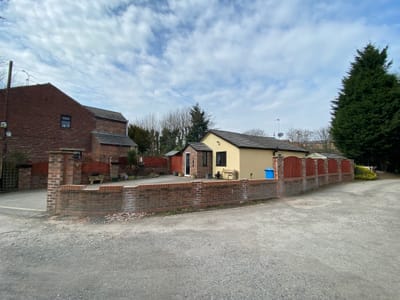
The Inspector found that when balancing the planning issues the proposal would provide a very significant benefit in terms of the standard of accommodation the dwelling would provide in the long term. It was also found to improve the living conditions of the current occupiers of the property.
These matters cumulatively carry very substantial weight and accordingly this outweighs the harm to the Green Belt. On this basis the very special circumstances needed to justify the proposal were demonstrated.
APPEAL SUCCESS AND FULL AWARD OF COSTS GRANTED FOR CONVERSION OF HOUSE INTO FIVE BEDROOM HMO
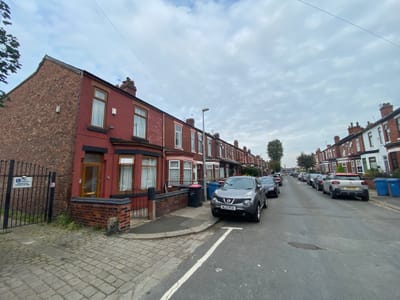
Salford Council have a blanket Article 4 Direction which removes normal permitted development rights for changes of use from Class C3 to Class C4 in order to manage amenity and character impacts associated with HMOs, as well as to ensure that balanced communities are maintained within the City.
Planning Inspector Nigel Harrison noted the Council’s licensing team confirmed the scheme would fully comply with its HMO standards with appropriate accommodation being provided. He also confirmed that all bedrooms would be laid out so that they could accept a single or double bed, other necessary furniture, and some storage space. Bedroom sizes exceeded the Council’s Standards for HMOs. Whilst the Council’s HMO Guidance does not form part of the development plan, it is a Council document that has been prepared to ensure HMOs adhere to acceptable standards.
The Framework sets out three overarching objectives to achieving sustainable development. One of these, the social objective, seeks to support strong, vibrant, and healthy communities by ensuring that a sufficient number and range of home types is provided to meet the needs of present and future generations. The appeal proposal was considered to play a part in meeting these objectives.
The Planning Inspector also granted a Full Award of Costs in favour of the appellant on the grounds of the unreasonable behaviour of Salford Council resulting in unnecessary or wasted expense.
Infill house granted adjoining conservation area in glossop
Working proactively with the Council Planners, Conservation Officer, Highway Engineer and Arboricultural Officer a scheme has been designed that the Planner has assessed to be of 'high quality' and preserves the setting of the adjacent conservation area.
Measures to improve biodiversity within the site have been achieved including integrated bird and bat boxes, native hedgerow planting and trees.
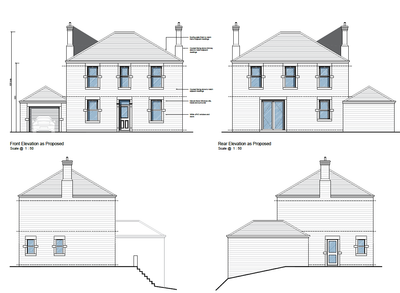
Residential redevelopment of former builder's yard
Working with Aspin & Co, Chartered Surveyors we were able to demonstrate that there was no commercial viability with retaining the commercial use and full support was given by Tameside Planners and Committee Members.
A courtyard design was chosen to reflect the historic arrangement of buildings.
The proposal will provide a small, sustainable housing scheme that will provide a range of house types to create mixed and balanced communities.
Approval granted for business centre in Royton
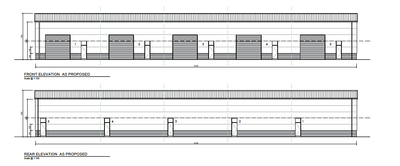
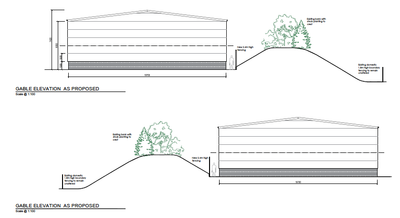
The scheme includes a block of five units, each measuring 2,000 sq ft and will be available for a mixture of B1 - Business, B2 - General Industrial or B8 - Storage or Distribution Use. The units can be combined as one or more larger unit, depending on the nature of the business.
The units will be marketed through Breakey & Nuttall http://www.breakeynuttall.co.uk/
Three detached houses, The Heath, Glossop
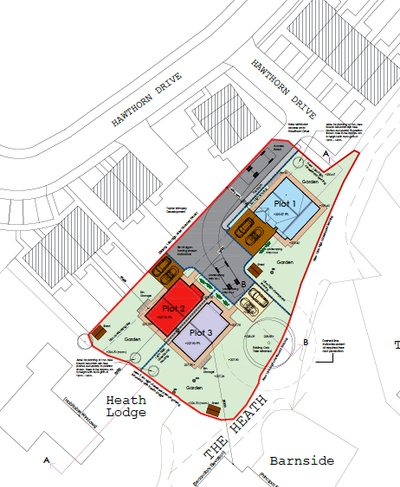
The site contains a beautiful TPO oak tree. Working with Council Officers and our own Arboricultural Consultants the design was modified to secure the retention of the protected tree, whilst at the same time deliver sustainable development.
During early 2020, permission was granted for minor amendments to the approved scheme. Positively working together with the case officer resulted in no pre-development conditions being necessary as all information was provided with the application.
Case Studies
The use of permitted development allows the conversion of offices into residential devlopment
Read MoreConsent granted to convert existing gym into a mixed use development in close proximity to Grade II Listed Building
Read MoreDemolition of existing house and redevelopment of house and garden plot
Read MoreLarge extension to industrial premises in close proximity to river and houses
Read MoreSupport granted for solar panels in National Park
Read MoreListed Building Consent granted for canopy and internal remodelling of Caffè Grande Abaco, Uppermill
The conversion is of high quality and retains many of the original features.
Working positively with Council Planning Officers and Conservation Officers resulted in a positive outcome that brings life back into the premises.
Green Belt planning approvals
Stone stables in the Green Belt
Read MoreOutline planning consent granted in former quarry in Green Belt
Read MoreMulti-functional hall in Green Belt
Read MoreFormation of a car park and disabled access ramp in the Green Belt to support a local ice cream business
Read MoreTestimonials
RECOMMENDED ARCHITECTS/Technologists
Creative Architecture - Adam Hegab
Tel 07788200255
www.creativearchitectureltd.co.uk
PLanz - Keith Myhill 39 Market Street, Broadbottom, Hyde, Cheshire SK14 6AX
Tel: 07712 409024
